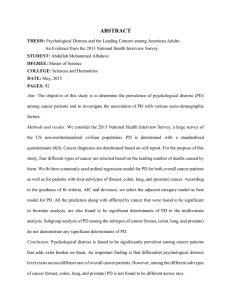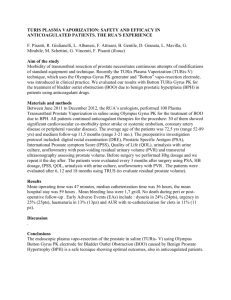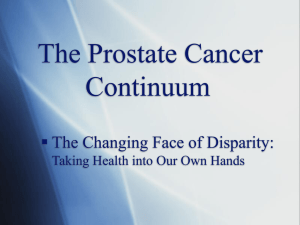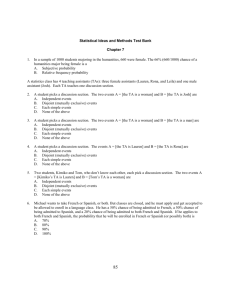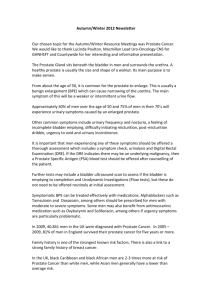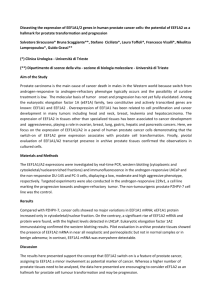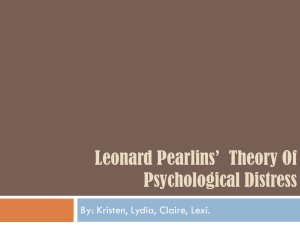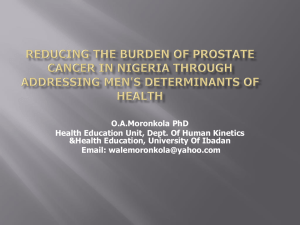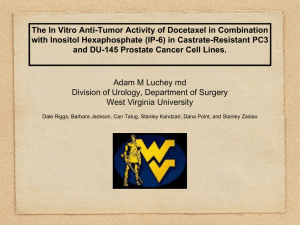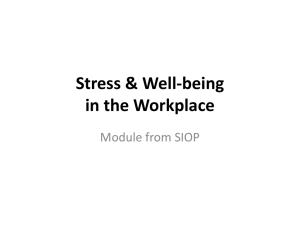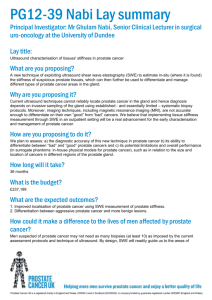Project Title An exploration of the experience of men undergoing
advertisement
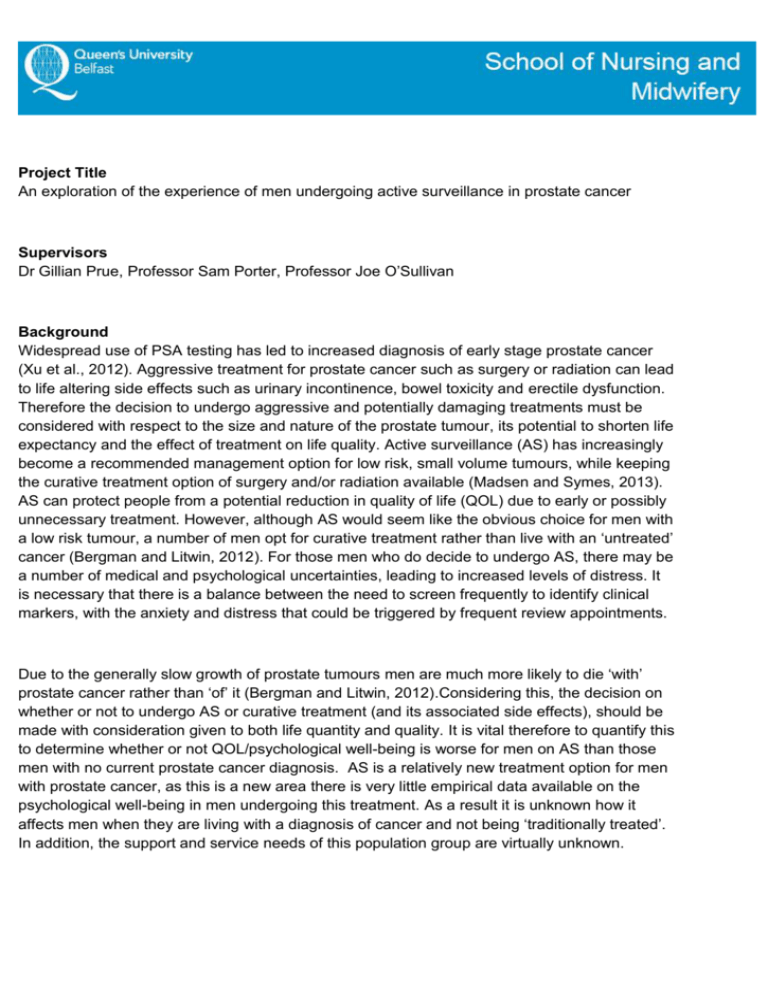
Project Title An exploration of the experience of men undergoing active surveillance in prostate cancer Supervisors Dr Gillian Prue, Professor Sam Porter, Professor Joe O’Sullivan Background Widespread use of PSA testing has led to increased diagnosis of early stage prostate cancer (Xu et al., 2012). Aggressive treatment for prostate cancer such as surgery or radiation can lead to life altering side effects such as urinary incontinence, bowel toxicity and erectile dysfunction. Therefore the decision to undergo aggressive and potentially damaging treatments must be considered with respect to the size and nature of the prostate tumour, its potential to shorten life expectancy and the effect of treatment on life quality. Active surveillance (AS) has increasingly become a recommended management option for low risk, small volume tumours, while keeping the curative treatment option of surgery and/or radiation available (Madsen and Symes, 2013). AS can protect people from a potential reduction in quality of life (QOL) due to early or possibly unnecessary treatment. However, although AS would seem like the obvious choice for men with a low risk tumour, a number of men opt for curative treatment rather than live with an ‘untreated’ cancer (Bergman and Litwin, 2012). For those men who do decide to undergo AS, there may be a number of medical and psychological uncertainties, leading to increased levels of distress. It is necessary that there is a balance between the need to screen frequently to identify clinical markers, with the anxiety and distress that could be triggered by frequent review appointments. Due to the generally slow growth of prostate tumours men are much more likely to die ‘with’ prostate cancer rather than ‘of’ it (Bergman and Litwin, 2012).Considering this, the decision on whether or not to undergo AS or curative treatment (and its associated side effects), should be made with consideration given to both life quantity and quality. It is vital therefore to quantify this to determine whether or not QOL/psychological well-being is worse for men on AS than those men with no current prostate cancer diagnosis. AS is a relatively new treatment option for men with prostate cancer, as this is a new area there is very little empirical data available on the psychological well-being in men undergoing this treatment. As a result it is unknown how it affects men when they are living with a diagnosis of cancer and not being ‘traditionally treated’. In addition, the support and service needs of this population group are virtually unknown. Aim of study The overall aim of the study is to explore the experience of men with prostate cancer undergoing AS. This will be achieved through the measurement of the psychological well-being (quality of life, anxiety and depression, distress, illness uncertainty) and unmet needs of men with low risk prostate cancer over the course of their AS. Objectives To analyse prospectively the psychological well-being of men undergoing AS, compared to that that of a group of healthy, non-cancer male volunteers. To explore the variables associated with poor psychological well-being, in order to profile men that may be at more risk of developing psychological distress (and possibly not suited for AS). To explore, in-depth, the impact of the disease, undergoing AS (particularly the frequency and nature of screening) and to identify the information and support needs of this population group. Methodology A multiple point, prospective, longitudinal exploratory design, incorporating both quantitative and qualitative methods will be used to collect data at specified time points during AS. Data to provide an indication of psychological well-being (quality of life, anxiety and depression, distress, illness uncertainty) will be collected at multiple predetermined time points. For comparison purposes, to provide an indication of the level of distress, data will be collected from a group of matched non-cancer male volunteers at equivalent time points. In-depth qualitative interviews will be carried out to explore the experience of the disease and the impact of AS on the lives of men with prostate cancer and those close to them. Particular emphasis will be on how these experiences change and evolve over time in relation to the timing, frequency and nature of screening. Required qualifications Applicants must have (or be about to attain) at least an upper-second class honours bachelor’s degree or master’s degree in the field of nursing or a cognate discipline in the social and health sciences. Desired research skills The candidate should have undergraduate and/or postgraduate experience in research methods and have knowledge of both quantitative and qualitative methods.
